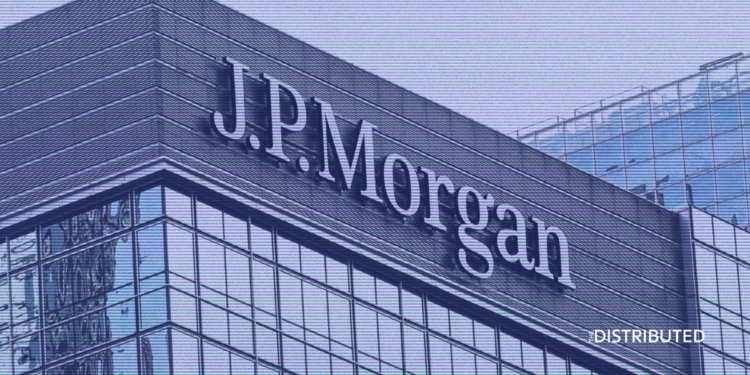J.P. Morgan is one of the world’s largest banks and they’ve been quietly developing a project dubbed “Institutional DeFi” which would raise the market of decentralized finance into the trillions.
- Head of Onyx Digital Assets by J.P. Morgan, described that the bank would be able to multiply the tokenized collateral backing DeFi into the trillions, it currently stands at US$70 billion.
- Onyx is a blockchain-based platform that would enable wholesale payment transactions. A recent pilot from the Monetary Authority of Singapore dubbed “Project Guardian” will “test the feasibility of applications in asset tokenization and DeFi.” Singapore and France have already tested the feasibility of the blockchain, with the first transaction between the two nations using a CBDC.
- J.P. Morgan is already experimenting with tokenized money market funds by Blackrock settled on Onyx, and the network utilizes the bank’s token dubbed JPM Coin. Although Lobban stated that J.P. Morgan hasn’t decided which DeFi protocols it will go with yet “It’ll be from the bench of protocols that you’d expect, battle-tested with high TVLs“
Institutional DeFi Will Take Its Time
- For DeFi to become mainstream, it has to go through various regulatory requirements including Know Your Customer (KYC), Anti-Money Laundering (AML), and Combating the Financing of Terrorism (CFT), along with insurance policies.
- Institutional DeFi would also require W3C verifiable credentials to identify and verify credentials, this is due to the regulatory requirements.
- Lobban explained at Consensus 2022 that verifiable credentials aren’t held on-chain which means there wouldn’t be the overhead involved in writing this kind of information to the blockchain, paying for gas fees, etc. These platforms would have to be authorized to trade on behalf of a bank.



